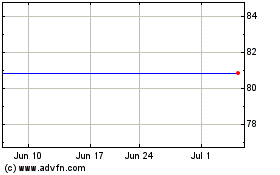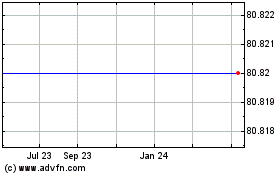When are the woes for the Cardiac Rhythm Management (CRM) market
going to end? This question continues to nag us as sliding sales of
the stalwarts of this market do not show any sign of abatement.
This hi-tech specialized niche includes implantable cardioverter
defibrillators (ICDs), cardiac resynchronization therapy devices
(CRTs), and pacemakers, all catered to address cardiac
abnormalities.
Though pressed against the wall, we would like to believe that
the segment holds attractive opportunities over the long term,
given the growing aging population, higher incidence of heart
diseases, as well as technological advancements that are keeping
pace with lifestyle diseases.
According to a report by Global Industry Analysts (GIA), the CRM
market is scheduled on a growth path, estimated to reach $27.7
billion by 2017. Moreover, the future looks bright given the
untapped potential of the developing markets such as Asia-Pacific,
Eastern Europe and Latin America.
Though the long-term prospects of the CRM market remain intact,
the unfavorable state of affairs over the recent past has unduly
put this segment under pressure. The business had hitherto thrived
not withstanding the financial and debt crisis.
Medical devices players with significant exposure to this
segment such as Medtronic (MDT), Boston
Scientific (BSX) and St Jude Medical
(STJ) have been the hardest hit. Boston Scientific also faced the
brunt of a goodwill impairment charge of $697 million in the first
quarter of the current fiscal due to reduction in the estimated
size of the US CRM market.
Manufacturers of CRM devices are struggling to stem the rot of
declining sales. The downside issued mainly from negative publicity
from an article published in the Journal of the American Medical
Association on ICD utilization that affected implant volume. The
Department of Justice investigation into hospital utilization also
did not help matters.
Besides, macro issues like the European debt crisis, austerity
measures, healthcare reforms and resulting pricing pressure are
continuing to haunt the financial world at large. The dark shadows
are reflected in the latest earnings reports, a trend we believe
would persist for some time to come.
The worst affected among the three industry giants has probably
been St. Jude with roughly 54% of its revenues being derived from
the CRM niche followed by Medtronic and Boston Scientific garnering
a respective 30% and 27% of their total revenue from this
market.
The Counters
Undaunted by a lackluster CRM market, the device makers are
looking to launch new, state-of-the-art products to recover failing
sales. In this respect, positive developments over the recent past
could be a saving grace for these companies.
Last week, Boston Scientific received US approval for CRT-Ds and
ICDs like Incepta, Energen and Punctua. Though expected, the US
approval comes even earlier than the company’s original guidance of
late 2011 or early 2012. CE Mark approval for these defibrillators
was received in the second quarter of 2011.
Moreover, St. Jude also received FDA approval for its much
awaited Unify Quadra CRT-D and Quartet Left Ventricular Quadripolar
Pacing Lead. Though the launch of the device was delayed from
mid-2011 to year-end, it surely represents a big break for
beleaguered St. Jude.
Breakthrough approvals of new devices offer both Boston
Scientific and St. Jude with the potential to turn around the
ailing ICD business. Earlier this year, Medtronic had received
approval for its next generation Protecta ICD, capable of partially
offsetting pricing pressure. Besides, Boston Scientific’s next
generation Ingenio family of pacemakers is slated for launch in the
US and EMEA in the first half of 2012, subject to regulatory
approvals.
Recently, Medtronic received a favorable recommendation from an
advisory panel of the US Food and Drug Administration (FDA) for
expanded use of its defibrillators. The panel voted in favor of the
device on twin criteria of safety (5 versus 0) and efficacy (3
versus 2) concluding that the overall benefits of the device
outweigh possible risks in treating mildly symptomatic heart
failure patients.
Medtronic’s defibrillators are already approved for patients
with moderate-to-severe heart failure. The FDA had approved, in
September 2010, the expanded use of Boston Scientific’s
defibrillators for patients with mild heart failure, even including
those without symptoms.
We consider label expansion of the defibrillator to be a certain
positive for Medtronic. But is this enough to offset the headwinds
currently at work?
In Conclusion
The million dollar question, at this point, is whether these
recent product launches are sufficient enough to pull it off,
reviving a sagging CRM market? Product launches will definitely
provide some cushion to this segment though nothing spectacular is
expected in the near term. We eagerly await information on the
adoption of St Jude’s paradigm shifting Unify Quadra
defibrillator.
The players in the CRM market also acknowledge that it is
difficult to predict a timeline for resolution of these pressing
problems. As a result, to safeguard their top line, they have
resorted to other strategies such as developing up-and-coming
therapies, a focus on emerging markets, and restructuring
initiatives.
The latter would also help improve the bottom line in a scenario
where the top line is growing at a snail’s pace. Strong balance
sheets help these majors to target suitable acquisitions to aid
growth.
Over the long term, we have Neutral recommendations for
Medtronic, Boston Scientific and St Jude Medical, in line with the
short-term Zacks #3 Ranks (Hold) on the companies.
BOSTON SCIENTIF (BSX): Free Stock Analysis Report
MEDTRONIC (MDT): Free Stock Analysis Report
ST JUDE MEDICAL (STJ): Free Stock Analysis Report
Zacks Investment Research
SJM (NYSE:STJ)
Historical Stock Chart
From Sep 2024 to Oct 2024

SJM (NYSE:STJ)
Historical Stock Chart
From Oct 2023 to Oct 2024
